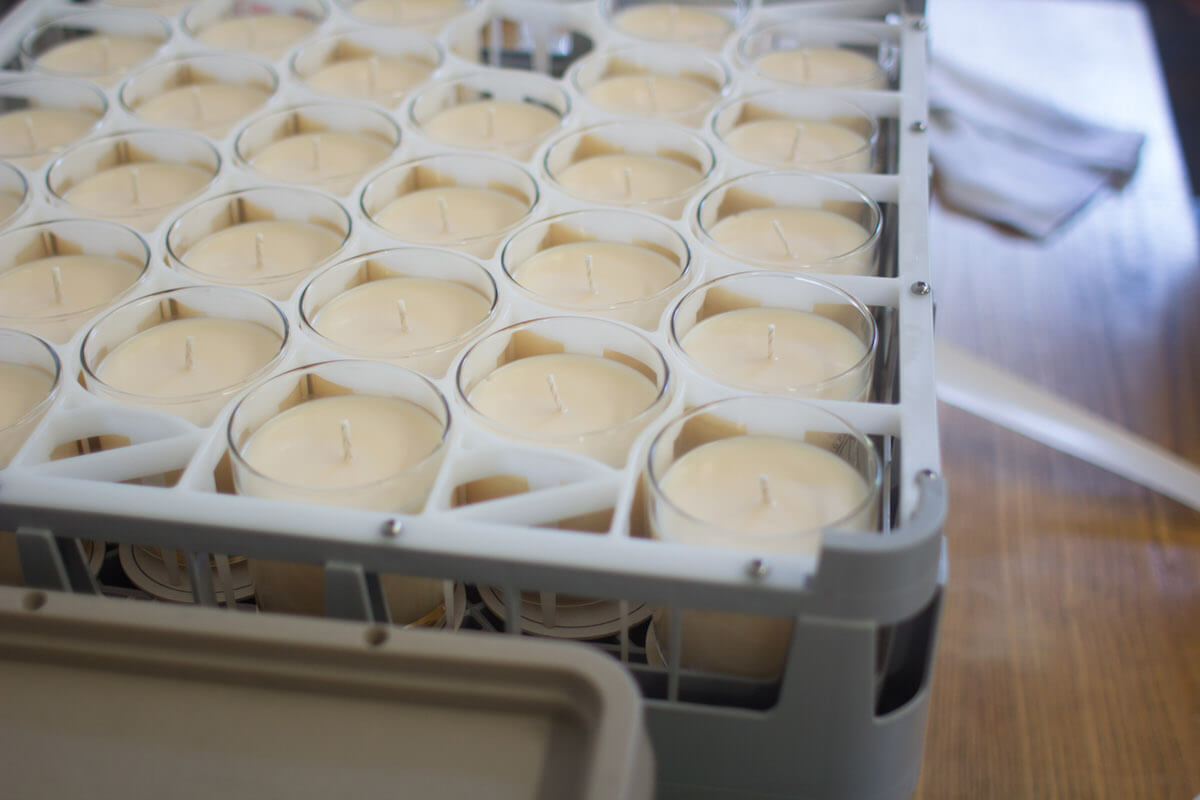Harry DoullOWNER
Harry Doull is the co-founder of Keap, an Industry City-based high-quality candle company with a social mission.
Updated: February 11th, 2022


Harry DoullOWNER
Harry Doull is the co-founder of Keap, an Industry City-based high-quality candle company with a social mission.
Employees
6
Founded
2015
LOCATION
New York, NY
For our inaugural issue of WTFinance, Vendors at Canal Street Market share their two cents on money-saving strategies, professional rituals, and what freaks them out most about small business finances.

Take a proper 45+ min lunch break where I completely get away from work every day. That time is really important to recharge, and you easily gain that time back in improved productivity in the afternoon and better well-being.

What’s a mistake you see get made all the time, even by very smart people? What have you learned from that to handle that thing the right way?

Lacking focus and saying yes to everything. There are so many things we could do, but there aren’t enough hours in the day to do them all well. If you want to do something well, you have to accept that you need to forego doing other things that are also valid, fruitful ideas. To be honest, I’m still figuring out how to solve this!

Is there—or has there been—expenses you now see as big wastes in the rearview?

Not really! We’ve been very cash-constrained, and that’s forced us to really think through our spending decisions. We’ve obviously made mistakes, but there isn’t a particular area that has been a real drain.

If you had an extra $___, what would you do?

Open a beautiful store where people could interact with the candle making process, and learn about the magic of fragrance and of manufacturing.

What are some money-saving strategies you’ve used as a growing business?

Invest a little time to learn to do things yourself almost as well as a pro—and get the pro only when you really need them. We also spend some time thinking about the economics of doing some things in-house vs. through a supplier, e.g. fulfillment or printing. The default business mantra is to outsource everything; in our opinion it sometimes makes sense, but sometimes it doesn’t.

What business expense–if any—have you most underestimated?

Freight… I didn’t know anything about that world or that it is a significant percentage of every purchase we make. Also, random warehouse and office supplies: things like dollies and carts are outrageously expensive. It would be cool if there were a B Corp doing what ULine does in a more thoughtful way… just saying.

As a creative, is there anything about finance (or a financial concept) that still totally freaks you out (or you just can’t seem to get the hang of)?

Not conceptually, though cash management has been a challenge. Another challenge is that, despite what you sometimes hear about “Wall Street helping entrepreneurs”, a bank that gives a loan to a startup is like a horse with wings. Getting access to credit has been near impossible for us, and I assume this is why we see many businesses around us raising VC money when their businesses are not well suited to that kind of investor.

Best summer job:

World Food Program – working alongside some of the most inspiring, hardworking people I’ve ever met.

Worst summer job:

Busboy at the breakfast shift of a hotel. I’m not a morning person…

What professional rituals do you have?

Weekly clean-up of our workshop space. It also clears up our mind in a remarkable way.

Finish this sentence. Money is _________.

not everything.

If you had to do another job, what would it be?

Something that I also care about (but that might seem a bit random). I’ve been really impressed with a company called Ecovative, making amazing mushroom-based packaging that’s 100% biodegradable, and solving a big ecological problem of packaging waste. I’ve also learned to really admire Kickstarter the more I’ve worked with them. People there, starting at the top, really believe in what they’re doing, and it’s not all about the money.

3 favorite local independent businesses in NYC (and why):

There are a lot more in a similar vein; people that are really passionate about what they do, that go the extra mile to finesse every detail, and aren’t just after your money. It’s so obvious when you go to those places, and even more when you meet the owners.

Why is it important to support local independent businesses?

Independent businesses are a reflection of local culture, and by extension of our humanity. They’re our best way to fend off the “money monoculture” as Kickstarter’s CEO puts it. My nightmare is to wake up to a world where all the stores on my block are chain stores run by mega-corporations. As humans we’re better than that, and the good thing is that we all have the power to support with our wallet businesses that make our world better, not worse.

Must-have item at Canal Street Market (that isn’t yours):

Difficult one! I love my Dandy Farmer bonsai tree, and I’m also a sucker for Lulu’s fruit bowls, which are edible pieces of art.
Michael Jones is a Senior Editor for Funding Circle, specializing in small business loans. He holds a degree in International Business and Economics from Boston University's Questrom School of Business. Prior to Funding Circle, Michael was the Head of Content for Bond Street, a venture-backed FinTech company specializing in small business loans. He has written extensively about small business loans, entrepreneurship, and marketing.


Funding Circle
What’s one thing you’ve done in your career that helped you succeed, and that very few other people do?